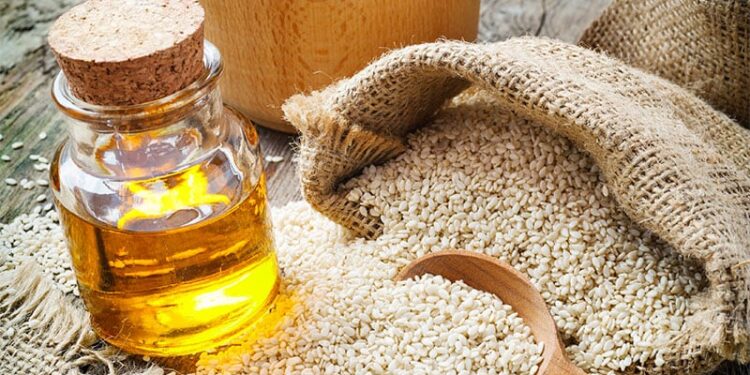TOPLINE:
In women with metabolic dysfunction-associated steatotic liver disease (MASLD), supplementing a calorie-restricted diet with unheated sesame oil, such as that used on salads or cooked meals, significantly improved biomarkers of glycemic control and insulin resistance.
METHODOLOGY:
- Sesame oil contains compounds that attenuate inflammation by suppressing proinflammatory cytokines, potentially improving glucose and lipid metabolism; however, studies on its role in MASLD are limited.
- Researchers in Iran conducted a clinical trial to investigate whether sesame oil supplementation influenced glycemic, metabolic, and stress biomarkers in women with MASLD (aged 20-50 years; BMI, 25-40) who regularly consumed sunflower oil.
- After a 2-week run-in period on their usual diet, patients were randomly assigned to consume 30 g/d of either sesame oil or sunflower oil in unheated form for 12 weeks, alongside a weight-loss diet with a calorie deficit of 500 kcal/d.
- Blood markers for glycemic control, insulin sensitivity, inflammation, and oxidative stress were measured at baseline and at 12 weeks.
TAKEAWAY:
- Of 60 patients enrolled, 53 completed the study, 27 in the sesame oil group (mean age, 38.89 years) and 26 in the sunflower oil group (mean age, 39.35 years).
- The sesame oil group experienced reductions in fasting blood glucose of 18.2 mg/dL, fasting serum insulin of 3.2 μIU/mL, and homeostatic model assessment for insulin resistance of 1.4 units; these reductions were significantly greater than in the sunflower oil group (P < .001 for all).
- Markers of pancreatic beta cell function and glucose regulation improved significantly in patients in the sesame oil group; however, markers of inflammation and oxidative stress did not differ between the two groups.
- Both groups achieved significant weight loss, with no differences between them.
IN PRACTICE:
“While both groups achieved significant weight loss, the superior glycemic improvements in the [sesame oil] group indicate effects beyond calorie restriction,” the authors of the study wrote.
SOURCE:
This study was led by Masoumeh Atefi, Shahroud University of Medical Sciences in Shahroud, Iran. It was published online in BMC Nutrition.
LIMITATIONS:
The study did not measure serum vitamin E levels, red blood cell fatty acid content, or serum A1c levels. Self-reported dietary intake might have introduced bias. Enrollment was restricted to women aged 20-50 years with a specified BMI, limiting generalizability.
DISCLOSURES:
The study received a grant from Isfahan University of Medical Sciences. The authors reported having no competing interests.
This article was created using several editorial tools, including AI, as part of the process. Human editors reviewed this content before publication.
Source link : https://www.medscape.com/viewarticle/sesame-oil-boosts-glycemic-control-women-masld-2025a1000iry?src=rss
Author :
Publish date : 2025-07-16 10:50:00
Copyright for syndicated content belongs to the linked Source.










